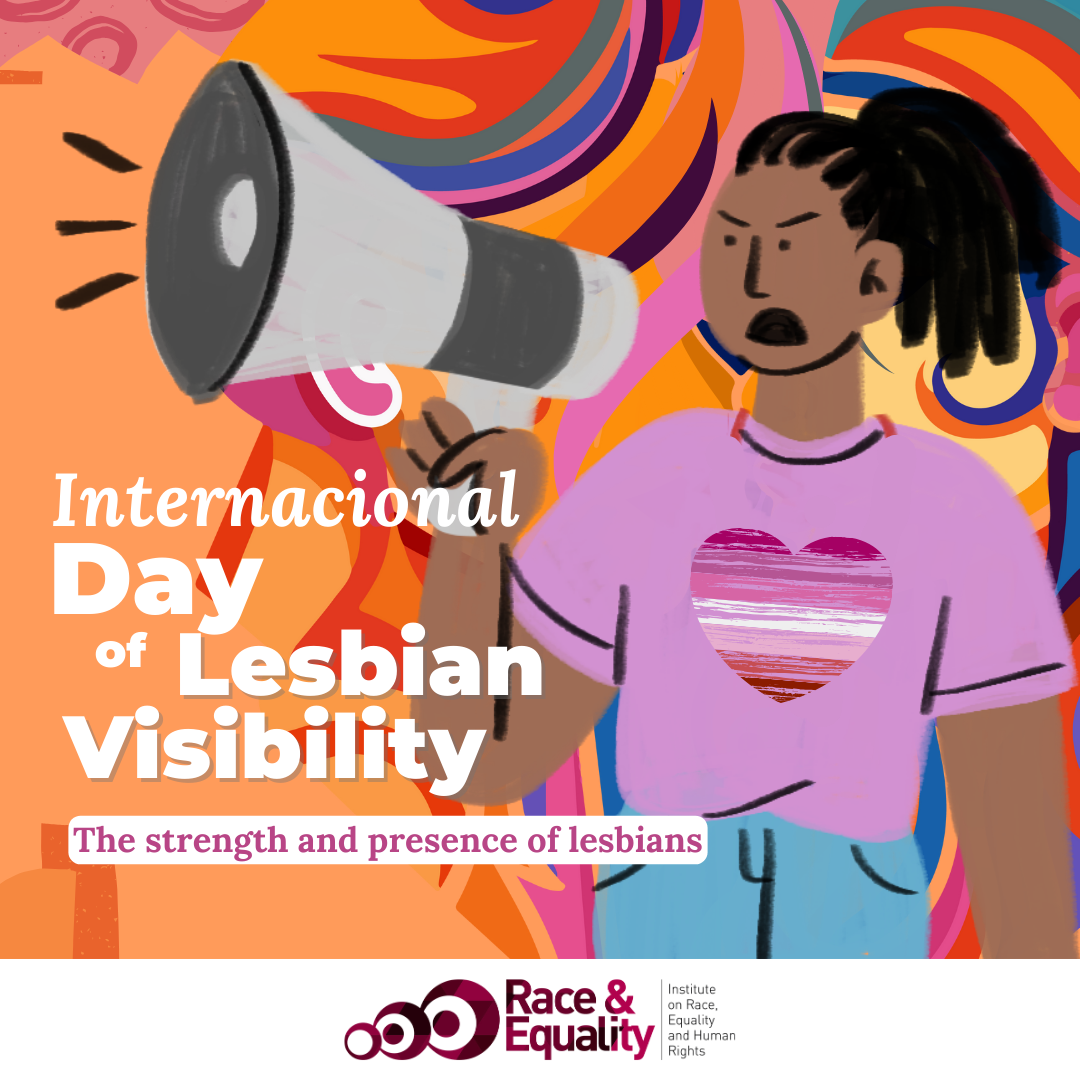Lesbian Visibility: a look into the strength and public presence of lesbians
The determination and strength of lesbians to make themselves visible, take a stand, and occupy public spaces has created a possible path toward the recognition of their human rights.

Washington D.C., 26 April 2024. – April brings much lesbian power. Today we recall the fundamental political role that lesbians have had in history, and the courage and determination of many lesbian women who face a machista, violent, and discriminatory society. Their strength has generated an undeniable impact in every country in the region; therefore, on International Lesbian Visibility Day, the Institute on Race, Equality and Human Rights (Race and Equality) highlights and recognizes the struggle of thousands of visible lesbians to live with dignity and for more lesbians to be present in public spaces exercising their human rights.
As signaled by the regional report from LESLAC[1] regarding the Situation of Lesbians, Bisexual, and Queer Women in Abya Yala, over time, societies have qualified lesbianism only as an individual and private sexual practice. However, lesbians have demonstrated many times their collective and political essence through social struggles. A demonstration of this is the first Meeting of Lesbian Feminists of Latin America and the Caribbean (ELFLC, for its name in Spanish) in 1987 in Mexico, a space that arose from the reflection of feminist lesbians to have their meetings to represent their political stakes.[2] Similarly, they achieved again when at the 4th Conference of Women in Beijing, in 1995, it was discussed –for the first time at a conference of the United Nations—the criminalization of same-sex partners and discrimination due to sexual orientation as it impugns human rights and how this should be recognized by the Universal Human Rights System of the United Nations.[3]
In addition to their determination to guarantee their participation in political discussion and action, lesbian women are committed to documenting and making their realities visible. With the support of Race and Equality, the first report about lesbian women in Cuba “If they don’t mention us, we don’t exist: lesbophobia in Cuba” will be launched this month, which accounts for the invisibilization of lesbian women on the Island. “There is still violence against lesbian women, we do not appear in any statistics on femicide or gender violence. We do not appear mentioned in any of the proposals made for a comprehensive law [against gender-based violence]. We do not even appear in the anecdotes of women victims of violence that are published on social networks”, says María Matienzo, independent journalist and Cuban activist, and the researcher responsible for the report.
Olguita Acuña, Nicaraguan singer and performer, feminist artivist, lesbian, and member of the Colectivo de Productores Audiovisuales y Artistas Latinoamericanos (COPAL), has a very beautiful way of contributing to lesbian visibility from the arts. “The country maintains a historic debt with women and the LGBTI+ population. In Nicaragua, they celebrate Miss Gay, Miss Trans, but not same-sex marriage or homoparental families. Personally, I sing in a feminine voice. I write my songs and poems in a blatant way that are dedicated to women that I love and have loved, from sensuality to tenderness. I do not deny, I do not hide who I am or whom I have the joy of loving before God and society,” she expressed.
In this line, Pamela Almendra, a Peruvian musician, signaled: “We as artists or moderately public people have a [pedagogical] task with society because we are not extraterrestrials, we are people like any other person.” Pamela is a renowned professional guitarist in Peru, who through her talent and fame has contributed to making visible and raising awareness about her identity as a trans lesbian.
The contribution of lesbian women to the visibilization, the occupation of public spaces, and the discussion on the best way to live have been carried out from different spheres, collectively and individually, to advance towards a more just society.
In this sense, it is the responsibility of the States to implement concrete measures to guarantee a life of dignity for lesbians and the full exercise of their human rights:
- Implement Comprehensive Sexual Education policies under a human rights approach to recognize and respect sexual diversity and gender identities.
- Guarantee the dignified treatment of lesbian women in all public and private services in the country through the strengthening of training programs for authorities, justice operators, public officials, and administrative staff, and the adaptation of care protocols.
- Record, document, and analyze violence against lesbians to better illustrate situations of violence and, subsequently, formulate prevention and care policies.
- Guarantee access to justice through the investigation and punishment of discrimination and crimes committed against lesbian women. Likewise, develop mechanisms to avoid the criminalization of lesbian mothers in custody processes for their children.
- Guarantee and defend the civil rights and family rights of lesbians through access to marriage equality and legal recognition for lesbian mothers and diverse families. In this sense, it is also necessary to respect rights acquired abroad.
- Promote lesbians’ access to political spaces and positions of power to guarantee the right to non-violent political participation and the representation of identities.
[1] Red de Organizaciones de Lesbianas y Mujeres Bisexuales en América Latina y El Caribe – LESLAC
[2] Triple Jornada (2004). Más allá de la opción sexual. Disponible en https://www.jornada.com.mx/2004/09/06/informacion/73_encuentro_lesbi.htm
[3] Comunidad de Madrid (2019). Estudio sobre las causas de la invisibilidad y la doble discriminación que sufre el colectivo de lesbianas en la Comunidad de Madrid. Disponible en https://www.comunidad.madrid/sites/default/files/doc/estudio_lebianas.pdf

